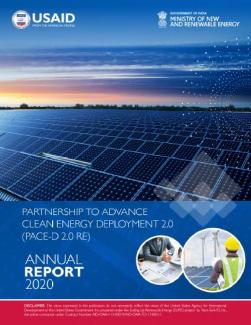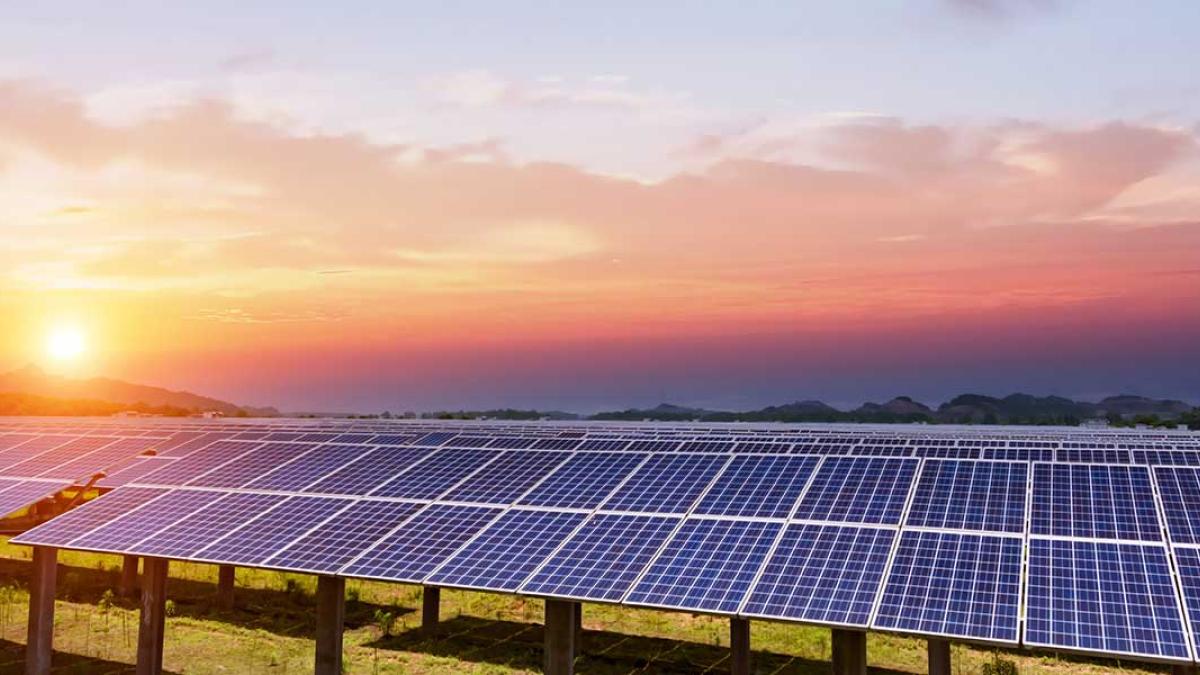Partnership to Advance Clean Energy–Deployment 2.0 Renewable Energy (PACE-D 2.0 RE) 2020 Results
Scaling Up Renewable Energy (SURE)
Annual Report –
Under the PACE-D 2.0 RE activity, SURE helped the Government of India scale up renewable energy, improve power distribution companies’ performance, and support upgrades to its regulatory and policy framework.
USAID’s Partnership to Advance Clean Energy–Deployment 2.0 Renewable Energy (PACE-D 2.0 RE) is part of USAID's global Scaling Up Renewable Energy (SURE) program that helps partner countries enhance their energy security and open paths to competitive renewable energy markets.
As part of the United States’ commitment to the U.S.-India Strategic Energy Partnership and the Clean EDGE Asia (Enhancing Development and Growth through Energy) Indo-Pacific energy initiative, the program is helping India address the climate crisis and meet its goal of adding 175 gigawatts (GW) of renewable energy including 40 GW of rooftop solar energy by 2022.
The program works with the Indian Ministry of New and Renewable Energy (MNRE) to help national and state partners provide reliable clean energy to consumers at an affordable price.
Our Work in India
During a time when the world was transformed by the COVID-19 pandemic, the program focused on interventions that maximized impact and minimized risk.
The program worked with the states of Assam, Gujarat, and Jharkhand, the Indian Railways, Solar Energy Corporation of India, Confederation of Indian Industry (CII)–Green Business Council, and other national stakeholders to develop and adopt policies, regulations, tools, and methodologies that would set up power distribution companies (DISCOMs) for success during and after the pandemic and help India achieve its renewable energy goals.
The program produced a report on the value of solar for the states of Gujarat and Jharkhand and continued working with the Gujarat Electricity Regulatory Commission on behind-the-meter storage regulations and time-variant demand charges. Assam is expected to adopt green tariffs to balance energy supply with demand, while Jharkhand is implementing a distributed photovoltaic (DPV) rooftop solar pilot for low-paying consumers.
The program developed the Renewable Procurement Optimization and Smart Estimation (REPOSE) software, a tool to help DISCOMs more accurately estimate consumers’ electricity needs, match demand with a power portfolio that integrates renewable energy, and maximize cost-effective renewable energy procurements.
Capacity-building efforts intensified with virtual webinars and professional trainings. The program scaled its successful approach across the region, launching an online certification program on strategic energy planning. The first cohort of 42 South Asian professionals graduated in 2020.
Highlights
Between June 2019 and September 2020, the program in partnership with MNRE:
- Supported the Solar Energy Corporation of India to release two system-friendly renewable energy procurements to lower generation and integration costs—major milestones in the country’s transition to a renewable energy future. The projects are a combination of renewable technologies and storage, which will bring 1.6 gigawatts (GW) to the grid, over $1 billion in investment, and reduce greenhouse gas emissions by 17.6 tCO₂e;
- Supported the Gujarat Electricity Regulatory Commission to implement two renewable energy tariffs;
- Developed three software tools to help scale renewable energy;
- Developed one business model to promote solar rooftops; and
- Engaged more than 100 institutions and trained nearly 630 policymakers, utility employees, regulators, developers, and financial and academic institutions.




